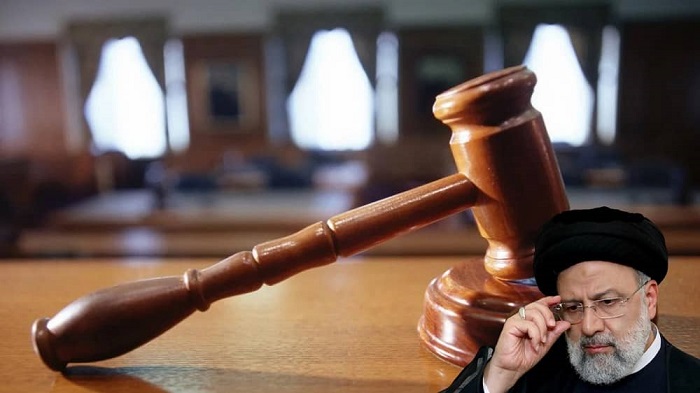
Two years since Ebrahim Raisi took office, the political atmosphere of Iran has dramatically shifted.
Initially seen as a consolidated effort to counteract the ongoing popular uprisings since 2017, the administration, backed by Supreme Leader Ali Khamenei, has now become the epicentre of domestic and global criticisms.
While the initial vision was to return to a state of undisputed rule, internal rifts have since deepened. A significant faction of the regime has vocally rejected Raisi’s governance. These dissensions stem from a backdrop of internet censorship, intensified poverty, stringent morality policing, and stagnation in foreign policy initiatives. So dire has the situation become that there are calls from within the government to only accept resignations from the present cabinet.
The economic markers during Raisi’s tenure underline this dissent., with inflation soaring to 83%, a liquidity surge of 73%, the dollar’s price increasing by 95%, gold coin prices skyrocketing by 162%, and an overall price index hike of 114%.

Statistics from state-affiliated media and former government officials point towards a daunting economic crisis.
Such alarming metrics have sparked outcries of protest from varied quarters, resonating within the controlled media channels and parliamentary discussions. Shargh newspaper’s recent stark warning to Raisi further adds to the internal unease. The article equated Raisi’s actions with those of Sheikh Fazlollah Nouri, a cleric executed in 1909 by Iranians for betraying a constitutional revolution. The implication of this comparison is a severe rebuke to the president and his administration.
However, the calls for accountability extend far beyond Iran’s borders. International figures, from former statesmen to human rights jurists, amplify these concerns. At the Free Iran World Summit 2023, Mike Pence, the 48th Vice President of the United States, and Janez Janša, former Prime Minister of Slovenia, were among the prominent voices demanding justice for Raisi’s alleged human rights abuses. Amnesty International has previously linked Raisi with the 1988 political prisoner massacre.
Similarly, international human rights leaders, including Dr. Melani O’Brien of the International Association of Genocide Scholars and Gilbert Mitterrand of the Danielle Mitterrand Foundation, have publicly demanded Raisi’s trial.
This international pressure is evidently shaking the Iranian regime, which has issued arrest warrants for over a hundred members of the Iranian Resistance. But attempts to suppress dissent are faltering. Despite state media claims about dismantling the Mujahedin-e-Khalq Organization’s network within Iran, global figures are pushing back.
Kenneth Lewis, representing the MEK during the Free Iran World Summit 2023, spotlighted the recent conviction of Hamid Noury, a former Iranian prison guard. This conviction is seen as indirect evidence against Raisi and other regime officials. Furthermore, the Iranian National Council of Resistance has unveiled a damning account against Raisi in Washington, emphasizing his role in numerous atrocities.
We say to the world community, especially to Western governments, that Mullah Raisi is a criminal guilty of genocide and crimes against humanity in 1988. He is guilty because he played a decisive role in the execution and murder of the Iranian people’s children #ProsecuteRaisiNow pic.twitter.com/XZrAVsKI63
— Maryam Rajavi (@Maryam_Rajavi) August 3, 2021
As Raisi’s two-year mark approaches, it’s clear that the narrative has shifted. The hope for a return to undisturbed power seems far from realization. Instead, calls for justice, accountability, and reform are growing louder by the day.
MEK Iran (follow us on Twitter and Facebook), Maryam Rajavi’s on her site, Twitter & Facebook, NCRI (Twitter & Facebook), and People’s Mojahedin Organization of Iran – MEK IRAN – YouTu

